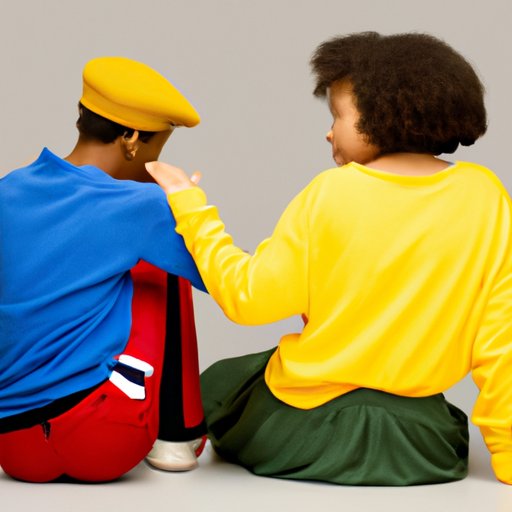
I. Introduction
Friendships play an essential role in our lives, providing us with support, companionship, and happiness. To maintain fulfilling friendships, we must be good friends ourselves. In this article, we will explore six ways to be a better friend, from active listening to respecting boundaries. By implementing these tips, you can strengthen your friendships and enjoy more meaningful connections with those you care about.
II. Learn to actively listen
One of the most important aspects of being a good friend is learning to actively listen. When we listen to our friends’ words, thoughts, and feelings, we show them that we value and care about them. To be an active listener:
- Maintain eye contact and focus on your friend.
- Ask open-ended questions to encourage your friend to share more.
- Avoid interrupting or responding to your friend until they have finished speaking.
By becoming an active listener, you can improve communication and strengthen your friendships. You will demonstrate to your friend that you are there for them and willing to listen and support them.
III. Be reliable and dependable
Being reliable and dependable is crucial to building trust and strengthening friendships. To be a reliable friend:
- Keep your commitments and be punctual.
- Show up for your friend when they need you, whether it’s for support or a fun activity.
- Follow through on any promises you make to your friend.
Your friend should be able to count on you when they need you most. By being a reliable, dependable friend, you build trust and demonstrate your commitment to the relationship.
IV. Practice empathy and understanding
Empathy is the ability to understand and share the feelings of others. When we practice empathy, we can deepen our connections with our friends and improve our communication. To show empathy:
- Acknowledge your friend’s feelings and perspectives.
- Put yourself in your friend’s shoes and try to see their point of view.
- Avoid judging or criticizing your friend’s feelings or actions.
Practicing empathy can lead to more meaningful, supportive friendships. Your friend will appreciate that you are trying to understand their experience and feelings and will feel more connected to you as a result.
V. Communicate effectively
Effective communication is crucial to maintaining strong friendships. When we communicate openly and clearly, we can prevent misunderstandings and resolve conflicts. To communicate effectively:
- Express your thoughts and feelings clearly, using “I” statements to avoid blaming your friend.
- Listen actively, giving your friend your full attention while they speak.
- Avoid making assumptions or jumping to conclusions.
By communicating effectively, you can build a foundation of trust and respect in your friendships. You will demonstrate that you are willing to work through challenges and prioritize the relationship.
VI. Be supportive
Being supportive is essential to any strong friendship. Whether your friend is going through a tough time or celebrating a success, you should be there for them. To be a supportive friend:
- Celebrate your friend’s successes and accomplishments.
- Offer a shoulder to lean on during difficult times.
- Encourage and motivate your friend to pursue their goals and dreams.
By being a consistent source of support for your friend, you will strengthen your friendship and show your friend that you care about their well-being.
VII. Respect boundaries
Respecting boundaries is essential to being a good friend. Every person has different boundaries and limits, and it’s crucial to respect your friend’s in order to maintain a healthy, respectful friendship. To respect boundaries:
- Avoid pushing your friend to do things they don’t want to do.
- Respect your friend’s personal space, including physical and emotional space.
- Avoid sharing your friend’s personal information without their consent.
You should respect your friend’s autonomy and individuality. By doing so, you foster trust and respect in your friendship.
VIII. Conclusion
To be a better friend, we must actively work to strengthen our friendships. By learning to listen actively, being reliable and dependable, practicing empathy, communicating effectively, being supportive, and respecting boundaries, you can build stronger, more fulfilling friendships. Take action today to implement these tips and deepen your connections with those you care about.




